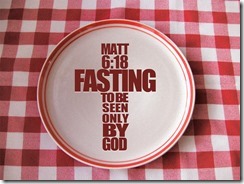
 How do I end Lent well? You have been fasting, praying, and practicing alms giving over the Lent season. In a way, Lent is like a race, and as one goes into Holy Week, the last lap on the track is entered.
How do I end Lent well? You have been fasting, praying, and practicing alms giving over the Lent season. In a way, Lent is like a race, and as one goes into Holy Week, the last lap on the track is entered.
How do we end Lent well?
1. Utilize Holy Week
What is Holy Week?
Palm Sunday is the start of the last loop of the Lent race. It begins with what Jesus followers call Holy Week. On Palm Sunday we celebrate the triumphant entry of Jesus into Jerusalem (Matthew 21). Then later in the week, we remember the Eucharist (Lk. 22:17-23; 1 Cor. 11:17-34). This is also known as the Lord’s Supper or Communion. Through these activities, we remember the suffering, death, and finally crossing the finish line of Lent in the resurrection.
Four major days of Holy week.
a. Holy Thursday
This day comes before Good Friday and commemorates communion, foot washing, and Jesus praying in the garden.
b. Good Friday – commemorates the death of Jesus. Many churches hold a gathering on this day filled with song, scripture reading, prayer and teaching.
c. Holy Saturday (Easter Vigil) – A day for rest, a time of waiting and short weeping.
d. Resurrection Sunday. – Celebration of the resurrection of Jesus. This is a time to celebrate. .
I would encourage you to utilize Holy Week. Many churches will hold extra prayer or gathering times. Consider entering into those times. I would also suggest that you read through the gospels, and the last days of Jesus’ death and resurrection. You could even pick up a devotional to guide you through scripture this week.
A Second tip for finishing Lent well is:
2. Hold a Jesus meal.
A Jesus meal is a time for believers to gather over a meal and intentionally share spiritual stories. They share about their walk with God and how they are growing. They share where they are seeing God at work. They share how they came to faith. Then, the night ends by praying for one another. There are many elements one could incorporate, but for a guide, check out this post:
A Third tip for finishing Lent well is:
3. Personal reflection again.
Answer this question – What will you take away from your lent journey? Journaling through the season can help in this area of reflection.
A fourth tip for finishing Lent well is
4. Celebrate.
Often in my life this is another meal. Consider inviting more than just your family. Perhaps you can gather a bunch of people and each take care for part of the meal. Be creative.
Be sure to gather with the church this day for a time of worship, scripture reading and prayer.
Celebrate the life you have in Jesus. Yes, have a party.
Finally to finish Lent well:
5. Keep running the race marked out for you.
This is just one chapter, one season in your life. We have climbed the mountain and have hopefully met with Jesus. But, he wants us to go back down the mountain, and engage life for his glory. Live for Jesus. To not do so will waste your Lent journey.
If you want to finish Lent well, live for Jesus after the season has come to an end.



